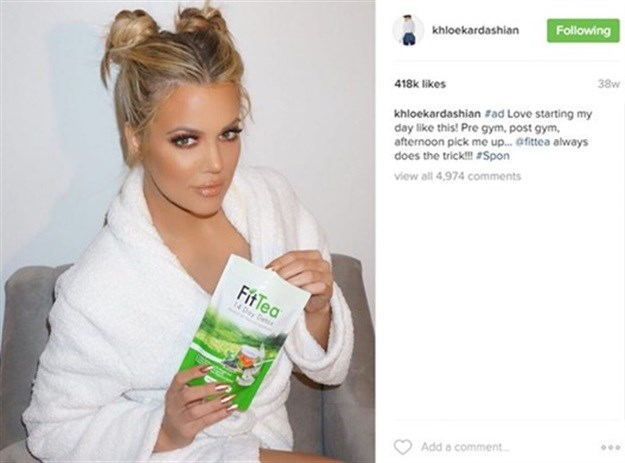Online influencers are a complex market, especially in the social media space where boundaries between public and private domains have become blurred and where we have perceived closer access to celebrities and role models that we have idolized since our teen years.
We can interact with these stars at the click of a button, and the choices they make inspire the choices that we make.
If social media trends are not on your radar, you might not have become aware of the influx of celebrities suddenly letting us into their lives and sharing with us their latest secrets to their brightest smile, or the smallest waist, or the longest hair. Social media celebrities have become increasingly industrious, and it’s hard to tell when they’re endorsing a product, or letting us into their personal lives.
Ingenious managers (or in the case of the Kardashian/Jenner clan – momagers) have negotiated clauses into contracts that have managed to bypass the protection of consumers – you didn’t really think Kim and her clan whitened their own teeth, did you?

Consumers are rushing to buy products trusted (read: endorsed) by their favourite celebrities, increasing the revenue of both the product and the celebrity, with absolutely no regard for authenticity, trust or transparency.
Advertising, marketing and competition authorities have cottoned on to this lack of transparency, and have started taking influencers to task for being duty-free brand marketers. The onus has now been placed on the influencers to protect their integrity and authenticity when it comes to brand endorsement to their audiences. Although creating sponsored branded content allows them all kinds of creativity, influencers now need to comply with the law of disclosure, and the initial approach to online influencer endorsement no longer has the legs it used to.
Following in the wake of highly debatable and controversial rules and regulations of sponsored content set out by the Federal Trade Commission (FTC) that were put into place in South Africa, online influencers need to disclose any sponsored brand content – for the protection of themselves and the brands they endorse, as well as ours.
This places a large amount of responsibility in the hands of influencers, and those who don’t pay attention to the regulations run the risk of loss of credibility, as well as being heftily fined. After all, if you’re going to be the face of a product as well as an inspiration to many, you need to do so responsibly and be aware of industry best practice.
As a consumer, this might not soothe the taste buds as well as those endorsed detox teas do, so here’s a breakdown of a few best practice guidelines on all platforms, which we can now hold our influencers accountable for:
All sponsored content needs to be clearly labelled. If the influencers themselves cannot tell that the posts are sponsored, chances are that we can’t either – so hiding them in a blur of words won’t be considered as full disclosure. The following hashtags have been approved on all platforms – from Facebook to Instagram, Twitter and blogs:
*(The FTC has made a point of noting that hashtags that are not easily identifiable as sponsored content, simply don’t count. Sorry Kim – but your very cryptic #sp, #spon, and #spons just don’t make the cut anymore.)
Although these rules may seem excessive at first, they are necessary to avoid the repercussions of not abiding by them. Not following these guidelines could result in permanent bans from social platforms – and no influencer can afford for their social platforms to be negatively affected.
In case you need a few pointers on whether your influencers are ‘behaving’, the FTC has laid out this helpful set of guidelines so that you can hold them accountable for their endorsements.
The IAB UK has weighed in with their guide to best native online advertising disclosure practice, too – both guides are enforceable to the influencer market, and will help you as a brand, to protect yourself.
